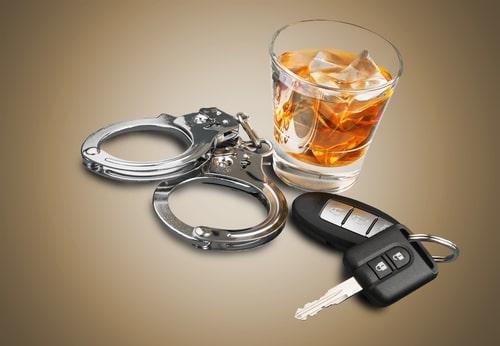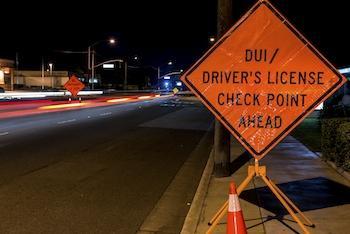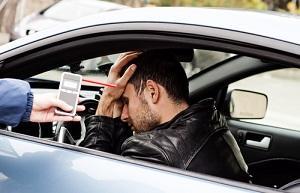Recent Blog Posts
How to Defeat an Unfair DUI Charge
 It may be hard to fathom that the average convicted drunk driver will get behind the wheel of a car 80 times before being arrested. With nearly 12,000 alcohol-related deaths, we are seeing a 14 percent increase since 2019. For that reason, the legal consequences are severe, especially for repeat offenders. At The Law Office of Brian J. Mirandola we understand that drunk driving is a problem but so is being wrongly accused of DUI. The repercussions are not fair if there are flaws in the arrest.
It may be hard to fathom that the average convicted drunk driver will get behind the wheel of a car 80 times before being arrested. With nearly 12,000 alcohol-related deaths, we are seeing a 14 percent increase since 2019. For that reason, the legal consequences are severe, especially for repeat offenders. At The Law Office of Brian J. Mirandola we understand that drunk driving is a problem but so is being wrongly accused of DUI. The repercussions are not fair if there are flaws in the arrest.
Seek Legal Help
Too many drivers do not seek legal help because they are embarrassed. But an unfair DUI conviction will have a lasting impact on your life. A key factor to remember is that it takes about an hour or more for alcohol to become fully absorbed into your body. So, if you had a drink before driving you may not be legally impaired while driving, even if a chemical test shows a BAC over the legal limit.
The first thing you should do is seek an experienced DUI attorney who will review your case and craft a strong defense.
Can You be Charged With DUI for Prescription Medication?
 Many people have serious pain or suffer from anxiety and rely on prescription drugs to cope with and tackle their daily lives. With doctors writing more than four billion prescriptions a year, it is no wonder that many medications end up being misused. While that may be the case many people need to get things done, so they often drive. So, could you face DUI drug charges if you can prove that you have a prescription for the medication in your system at the time of the arrest?
Many people have serious pain or suffer from anxiety and rely on prescription drugs to cope with and tackle their daily lives. With doctors writing more than four billion prescriptions a year, it is no wonder that many medications end up being misused. While that may be the case many people need to get things done, so they often drive. So, could you face DUI drug charges if you can prove that you have a prescription for the medication in your system at the time of the arrest?
Are Prescription Pills Intoxicating Substances?
In Illinois, it is illegal to drive if you are under the influence of any intoxicating substance. That includes alcohol, cannabis, illicit substances, and medications that have been prescribed. Merely showing a valid prescription is not enough to avoid a DUI.
However, when it comes to prescription drugs what matters here is whether or not you were impaired at the time of the arrest. Generally, if your ability to drive safely is impaired, you could be found guilty of DUI.
Domestic Violence Spikes During the Holidays
 The holiday season is typically a time for generosity and family get-togethers. Ironically, domestic violence increases across the nation during major holidays including Thanksgiving, Christmas, and New Year’s Day. In Illinois, one in three women and one in four men have experienced domestic abuse including shoving and slapping. A domestic violence conviction comes with serious legal consequences.
The holiday season is typically a time for generosity and family get-togethers. Ironically, domestic violence increases across the nation during major holidays including Thanksgiving, Christmas, and New Year’s Day. In Illinois, one in three women and one in four men have experienced domestic abuse including shoving and slapping. A domestic violence conviction comes with serious legal consequences.
Domestic Violence
Domestic violence is a concerning trend that involves intimidation, threats, physical injury, sexual assault, emotional abuse, and even death. If you are convicted, it can result in up to a year in jail. If there is a previous conviction for domestic violence it could be considered a Class 4 felony which could lead to up to three years in prison.
What Causes Domestic Abuse to Rise During the Holiday Season?
Unfortunately, domestic violence tends to go up during the holiday season. Perhaps the stress from holiday shopping and planning aggravates volatile personalities or triggers issues that have been brewing between couples. Here are other reasons why domestic violence does not take a holiday in what is supposed to be a time of celebration:
What You Should Know About Being Charged with DUI with Children in the Car
 About 600 child passengers are killed in a car accident every year, and approximately one-fourth of them die in a crash involving a drunk driver. We realize that for most parents the priority is to keep their children safe and prevent a tragedy. But if you are arrested for a DUI with a child in tow, there is a good chance child protective services will get involved, and you would benefit from having an experienced criminal defense attorney on your side.
About 600 child passengers are killed in a car accident every year, and approximately one-fourth of them die in a crash involving a drunk driver. We realize that for most parents the priority is to keep their children safe and prevent a tragedy. But if you are arrested for a DUI with a child in tow, there is a good chance child protective services will get involved, and you would benefit from having an experienced criminal defense attorney on your side.
Parental Abuse of Authority
Parents have authority over their children, but the reality is that children often have little choice but to get in the car with their parents even if they are drunk. Under Illinois law, no one can knowingly endanger the life or health of a child under 18 years old because it is considered child endangerment.
The courts are vested in protecting and safeguarding the children. There is a good chance that CPS will investigate and monitor the situation as it looks for patterns of abuse of authority and ongoing risk to the child. You could even lose parental rights.
DUI Charges Resulting from Sobriety Checkpoints
 Typically, the Fourth Amendment to the U.S. Constitution prevents police officers from conducting traffic stops without justification. Police need "reasonable suspicion" of criminal activity to pull a driver over. However, sobriety checkpoints are an exception to this rule.
Typically, the Fourth Amendment to the U.S. Constitution prevents police officers from conducting traffic stops without justification. Police need "reasonable suspicion" of criminal activity to pull a driver over. However, sobriety checkpoints are an exception to this rule.
At sobriety checkpoints, police officers can stop vehicles without any suspicion that the driver has committed a crime. The U.S. Supreme Court ruled in 1990 that sobriety checkpoints are constitutional as long as they are conducted in a reasonable manner. If you or a loved one are facing charges for driving under the influence because of a sobriety checkpoint, contact a DUI defense lawyer for help.
Are Sobriety Checkpoints Legal in Illinois?
State laws differ with regard to sobriety checkpoints. Illinois has allowed the use of sobriety checkpoints to assess drivers for intoxication. However, there are certain rules that the police must follow when conducting these checkpoints. For example, checkpoints must be publicized in advance, and they must be conducted at locations that have a history of drunk driving accidents or arrests. Officers must have an biased procedure for determining which vehicles to stop. For example, they may decide to stop every third vehicle that passes through the checkpoint area. However, they cannot stop people based on racial prejudices or other types of bias.
How Can I Avoid Losing My CDL After an Illinois DUI?
 If you own a commercial driver's license, you probably rely on your license to make a living. You may be a truck driver, bus driver, delivery driver, or another type of commercial driver. Regardless of what you do for a living, if you are arrested and convicted of driving under the influence (DUI) in Illinois, you could face the loss of your commercial driver's license (CDL). It is essential that you take steps to protect your future. Contact a DUI defense lawyer with experience representing CDL holders and start building your defense right away.
If you own a commercial driver's license, you probably rely on your license to make a living. You may be a truck driver, bus driver, delivery driver, or another type of commercial driver. Regardless of what you do for a living, if you are arrested and convicted of driving under the influence (DUI) in Illinois, you could face the loss of your commercial driver's license (CDL). It is essential that you take steps to protect your future. Contact a DUI defense lawyer with experience representing CDL holders and start building your defense right away.
Defense Strategies for CDL Holders Accused of Drunk Driving
In Illinois, the legal limit for blood alcohol concentration (BAC) is 0.08 percent for most drivers. For commercial drivers, the legal limit is much lower. You can be charged with DUI if your BAC is 0.04 percent or higher. For some people, as few as one or two drinks can put you over the legal limit.
Can I Qualify for a Diversion Program if I Am Charged with Felony Drug Possession?
 Drug addiction touches the lives of millions of people throughout the United States. While the criminal justice system has traditionally treated drug addiction as a crime, there is an increasing recognition that addiction is a disease that should be treated. This is especially true in states like Illinois, where lawmakers have passed legislation aimed at providing treatment instead of jail time for certain non-violent drug offenders.
Drug addiction touches the lives of millions of people throughout the United States. While the criminal justice system has traditionally treated drug addiction as a crime, there is an increasing recognition that addiction is a disease that should be treated. This is especially true in states like Illinois, where lawmakers have passed legislation aimed at providing treatment instead of jail time for certain non-violent drug offenders.
If you are facing felony drug charges in Illinois, it is important to speak with an experienced criminal defense attorney who can help you understand your options and fight for the best possible outcome in your case. In some cases, it may be possible to participate in a drug treatment program instead of going to jail.
Felony Criminal Charges for Drug Possession
Possession of cocaine, morphine, heroin, fentanyl, methamphetamine, PCP, LSD, or another illegal drug is usually a felony crime in Illinois. The penalties for felony drug possession depend on the type and amount of drug involved, as well as the offender’s prior criminal history. For example, a first-time offender convicted of possession of 15-99 grams of cocaine could be sentenced to between four and 15 years in prison. However, someone convicted of possessing 100-400 grams of fentanyl faces nine to 40 years behind bars.
Steps to Get Your License Back After a Revocation in Illinois
 If your license has been revoked after a conviction for driving under the influence (DUI) in Illinois, it can be a long and difficult process to get it back. Fortunately, there are steps you can take to increase your chances of getting your license reinstated. In this blog post, we will outline the steps you need to take to get your license back after a revocation in Illinois.
If your license has been revoked after a conviction for driving under the influence (DUI) in Illinois, it can be a long and difficult process to get it back. Fortunately, there are steps you can take to increase your chances of getting your license reinstated. In this blog post, we will outline the steps you need to take to get your license back after a revocation in Illinois.
Set Up a Driver’s License Reinstatement Hearing
The first step in regaining your legal driving rights is to file a petition for driver's license reinstatement with the Secretary of State's office. It this is your first DUI offense, you will probably be required to attend an informal Secretary of State hearing. However, if you have been convicted of multiple DUIs or DUI causing a severe accident, you will have to attend a formal hearing. At the hearing, you will need to show that you have completed all required DUI education and treatment programs, as well as any other requirements that may have been imposed by the court. If the Secretary of State finds that you have met all the necessary requirements, your license may be reinstated.
Can I Get Out of a DUI Even If I Failed a Breath Test?
 The state of Illinois, like most of the country, legally defines alcohol intoxication as having a blood alcohol concentration (BAC) of 0.08 percent or greater. If you are caught driving with a BAC of 0.08 percent or higher, you can be arrested and charged with driving under the influence (DUI). However, this does not mean that you will automatically be convicted if your BAC is over 0.08. You may still have defenses available to you that could result in acquittal or even dismissal.
The state of Illinois, like most of the country, legally defines alcohol intoxication as having a blood alcohol concentration (BAC) of 0.08 percent or greater. If you are caught driving with a BAC of 0.08 percent or higher, you can be arrested and charged with driving under the influence (DUI). However, this does not mean that you will automatically be convicted if your BAC is over 0.08. You may still have defenses available to you that could result in acquittal or even dismissal.
Breath Alcohol Testing Can Be Flawed
If the police pull you over and they smell alcohol on your breath or suspect you of drinking, they will ask you to take a breath test or breathalyzer. This initial test result provides probable cause for a DUI arrest. Once you are arrested and taken to the police station, you will be asked to take a second, more accurate test called the evidentiary breath test. There can be problems with both of these tests that may cause the results to be unreliable.
What Factors Can Elevate a Drug Possession Charge to Drug Distribution?
 Criminal penalties for drug distribution or selling drugs are usually much more severe than mere possession. If you or a loved one were accused of drug dealing, drug manufacturing, drug distribution, or possession with intent to deliver, secure legal counsel immediately. An experienced criminal defense lawyer can help you understand what you are up against and begin building a strong defense against the charges.
Criminal penalties for drug distribution or selling drugs are usually much more severe than mere possession. If you or a loved one were accused of drug dealing, drug manufacturing, drug distribution, or possession with intent to deliver, secure legal counsel immediately. An experienced criminal defense lawyer can help you understand what you are up against and begin building a strong defense against the charges.
Accusations of Selling Drugs
In order to be convicted of selling drugs, the prosecution must prove that you:
- Intended to sell or distribute the drug, and
- Actually sold or distributed the drug
The prosecutor does not need to show that you profited from the sale or distribution in order to secure a conviction. In fact, simply giving away drugs can result in a drug distribution conviction.
The type of drug you are accused of selling is also important. Selling harder drugs, like heroin or cocaine, will usually result in more serious charges than selling marijuana, for example. The amount of drugs involved is another important factor. Generally, the more drugs involved, the harsher the penalties will be.







